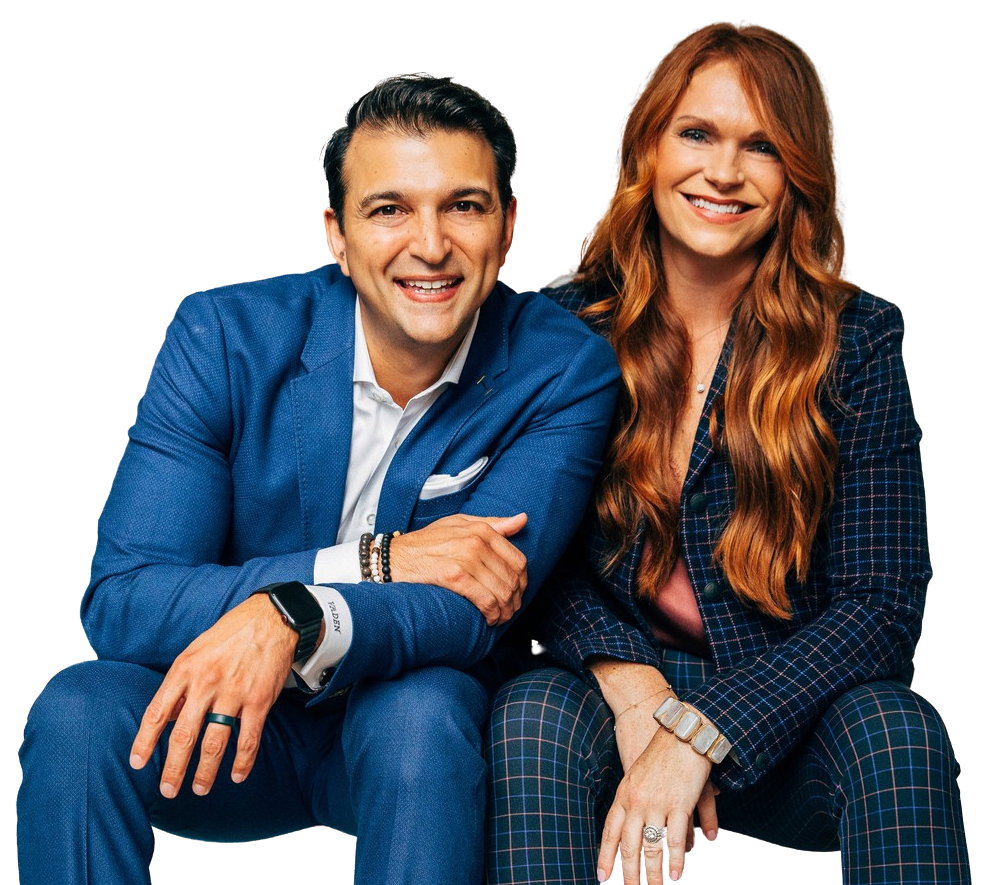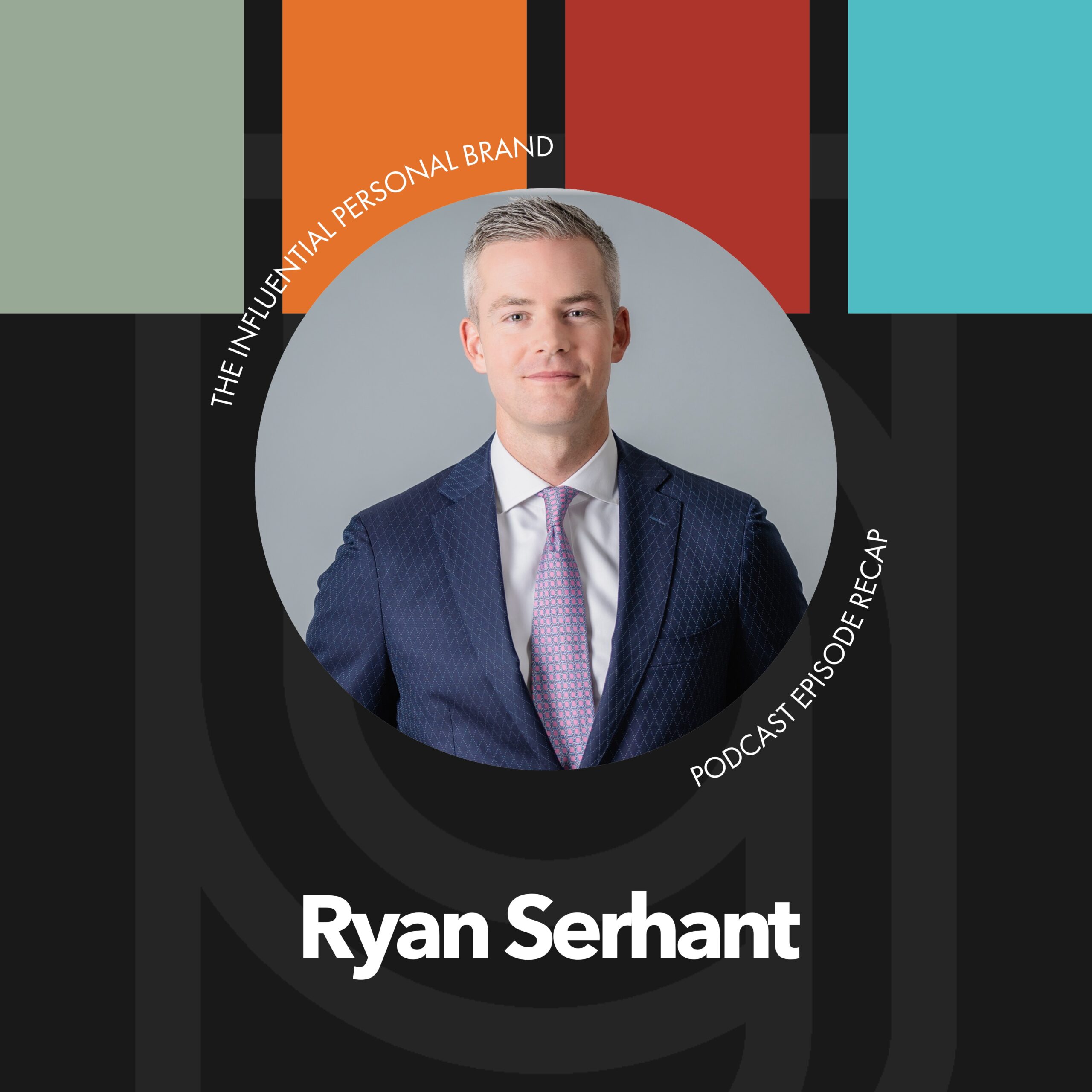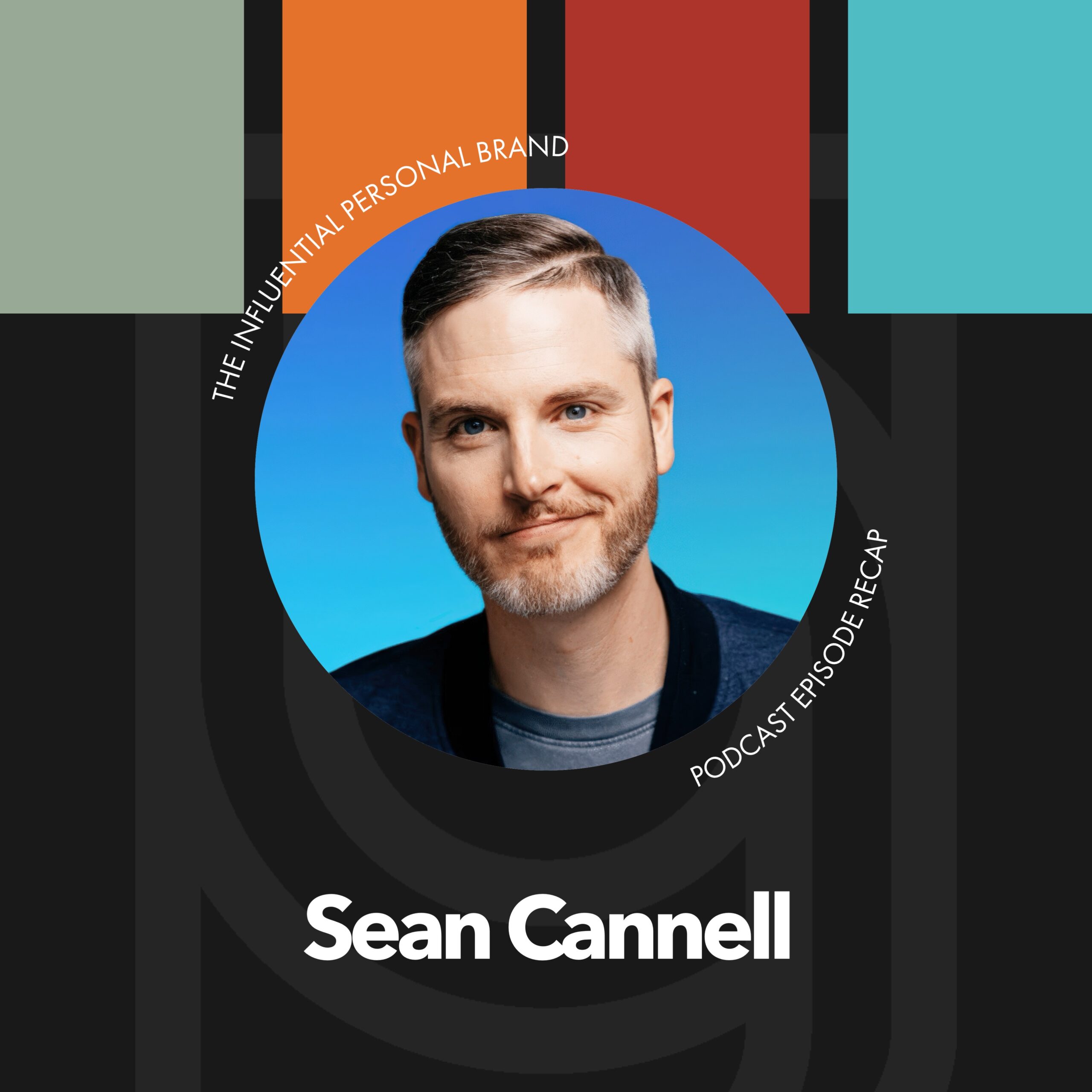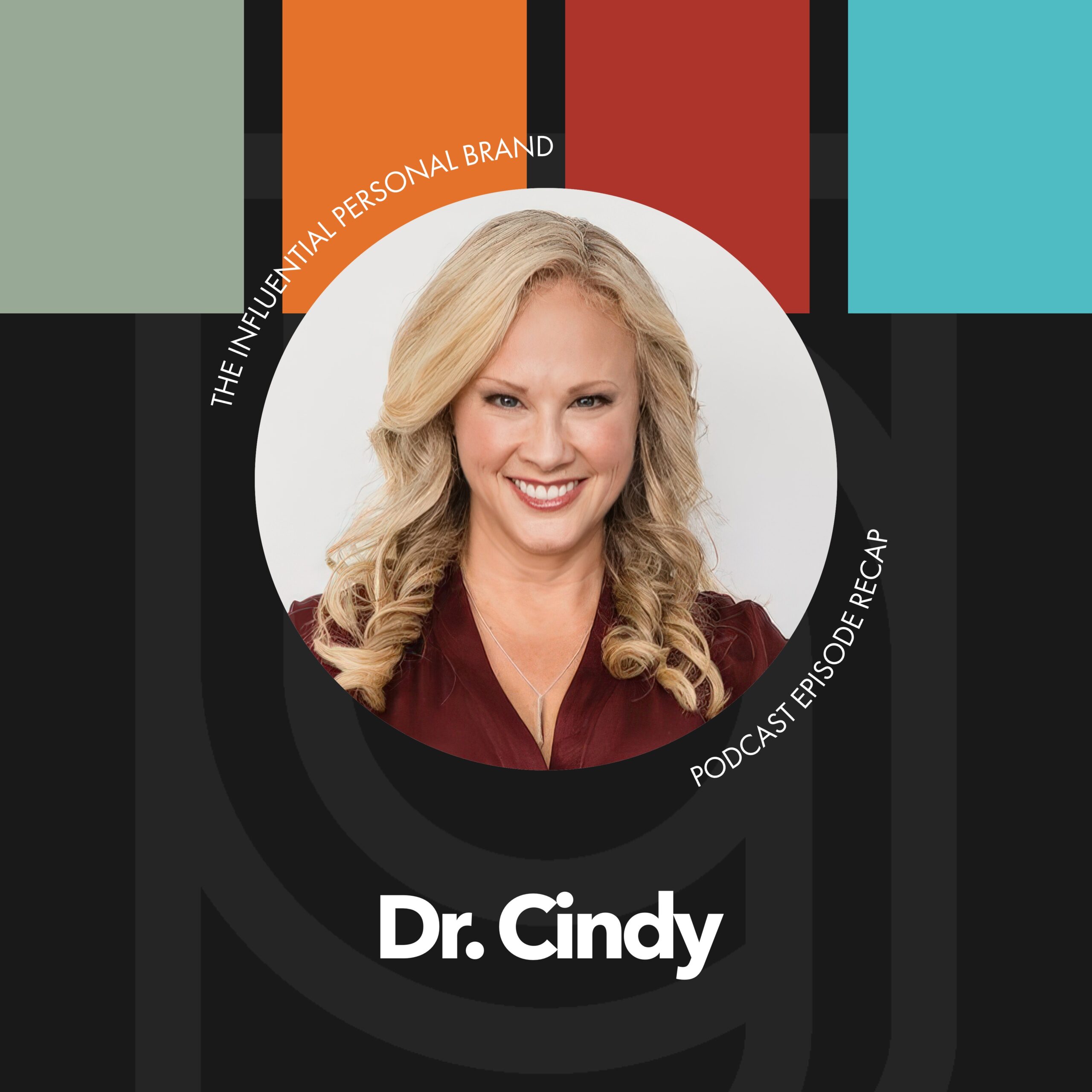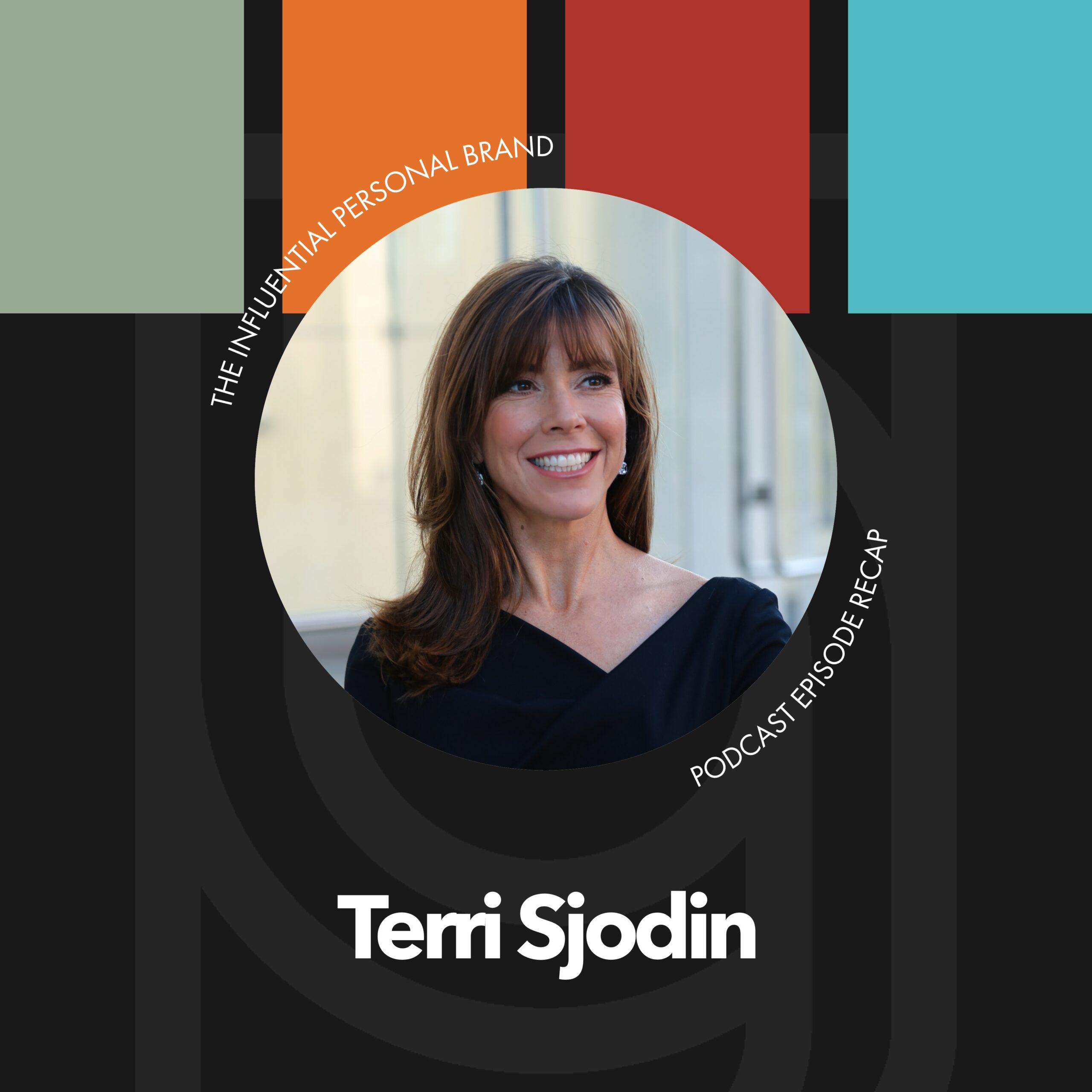AJV (00:02):
All right, we’re talking about sales today, and it’s not something that I talk about a ton. But today we’re gonna talk about it. And this is a little no saver. I love talking about sales. I love sales. I love learning about sales. I love doing sales. I love being a salesperson. I think this is just something that we should all embrace a little bit more in our daily lives in and outside of work. And so I just had Dr. Cindy, who’s a bestselling author and founder of Orange Leaf Consulting, and she was on the influential personal podcast. And I thought this would be a great opportunity to talk a little bit about some of the things that we had in that interview that I kind of just pulled out as some really important things that set apart this sales mindset from, from not.
AJV (00:53):
And I think one of the things that I would love for you guys to kind of pick up on is do you even consider yourself a salesperson? And I bet most people that I engage with say no. They say, I am, you know, insert any title. I’m an author, I’m a speaker, I’m an entrepreneur, I’m a coach, I’m a consultant. I’m a dentist. I’m an attorney. I’m a CPA. But even when you’re in sales most people don’t go, Hey, I’m a salesperson. I think that’s, that’s very, very rare that we would do that. And so I wanna talk about some of the things that I think make a great salesperson, even if you don’t identify with being in sales, because the truth is, you, you are, you are in sales, surprise. You are a salesperson. And that’s in and outside of work.
AJV (01:43):
And as a parent all day long, I’m negotiating, right? It’s just, who’s the better salesperson today? Me or them in my marriage, right? I’m selling all the time. Why this place? Why that thing? You know, why this restaurant? Like, there, there’s a sale always taking place as someone who recruits interviews and hires for our company. Like the entire interview process is just them selling me and me selling them products and services, podcasts listening to content, right? I think one of the things you have to realize is like, in order to have really great content, you can be a really great salesperson. You gotta sell. Why, why this is important. What problem is this solving? Why should I keep your attention with the 99 other things going on at this exact second? Like, that’s a sale. These are all micro sales. We are salespeople by nature, innately, right?
AJV (02:33):
It’s like that, that happens from a very, very young age of learning how to ask for what you want, the persistence in doing it, not giving up. And at some point, but that deteriorates over time. But we were innately equipped with this concept of selling, right? Which is, how do you get the things that you want, right? And, and I believe a lot of that is in service of other people. But, and often, right? It’s like as, as kids, it’s, it’s in service of yourself, right? It’s like, I’m gonna ask for this toy that I saw at Target 100 times, right? There is an immense level of persistence and determination in a five-year-old that finds the ninja turtle that they must have. Where does that disappear? Along the lines, when we get into business and adulthood, right? Something happened along the lines where we no longer do those things that we used to do.
AJV (03:26):
We’ve been taught not to we’ve gotten rejected too often. We’ve lost the passion, lost the persistence. The list goes on. And this isn’t a, a psychological, a psychological video today. But I do think there’s a few things that I wanna highlight that innately, regardless of what level of sales, if you are truly a sales professional or you’re just involved in communication, IE sales that are really important for you to kind of grasp. So these are in no particular order, but just a few things. Six to be exact. Six characteristics, six traits of something that I wonder if you would identify with on this path to acknowledging that you are in sales and that you are a salesperson on a daily basis. Number one is we all have to be ready for the opportunity. I think any great sale happens at the intersection of someone who has a need and someone who can solve that need, right?
AJV (04:26):
It’s the person who has a, a need or a want and intersecting with the person who can actually give them that want or fulfill that need. So step one is we have to be ready for the opportunity. What does that mean? That means we have to be aware. That means we have to be listening, engaging, communicating, participating, right? It’s some of the best relationships that I have ever developed happened on. And these are business relationships on the bleachers of a softball field, listening to someone behind me talk about some of the struggles of their sales team. I happened to be reading a book. I turned around and just said, Hey, I, I didn’t mean to be eavesdropping, but I was reading this book. And just by being aware, he was like, oh, yeah, I’ve actually read that book. What do you think? Started a conversation.
AJV (05:20):
And I said, well, I’m actually a, a sales consultant. I heard you talking. And, and we just struck up a conversation that ended up being a multi six figure client of mine in former life, and a multi-year long contract. Not to mention just a really great friend. Some of the other best relationships I’ve developed happened at different cookouts or social events or, or sporting events or in some regards restaurants. Like literally just being aware and ready for the opportunity. That is first and foremost, which means you have to know what is the problem or the need that
AJV (05:57):
You solve, right? That that’s step one. And when you hear other people have it, it gives you the opportunity to engage. But you gotta be ready, right? You gotta be aware of the opportunity and you’ve gotta be ready to engage. Number two, we have got to have the courage to ask, right? So you’ve gotta be ready and you gotta have courage. You have to have the courage to engage. You have to have the courage to ask. And a part of that is not being afraid of being told. No, it’s not being afraid of rejection not taking it personally, but generally speaking, it’s just the courage to engage. There is so much of our business that happens behind a computer screen, like right now that when we actually have the opportunity to opportunity to engage, we don’t, ’cause we don’t know how.
AJV (06:42):
Right? And a part of it is just being like getting engaged. Dunno where it’s gonna go. But I heard something that we have in common, so I’m gonna have the courage to ask about it. Not necessarily even ask for the business, just ask about what it is. What do they do? Where are they from? Just like I did. Hey, I don’t mean to be eavesdropping, but I heard something and I’m reading this book. I’m just aware, I’m ready. And I have the courage to ask. I have the courage to be curious. I have the courage to engage at number three would be being okay with accepting a no. Right? And I think that has a lot to do with just confidence and self-esteem of going, like, they’re not saying no to me as a person. They might be saying no to the timing.
AJV (07:29):
They might be saying no to the product or service. They might be saying no to my company, but more often than not, they are not saying no to me as a a person. Why They don’t know me, right? They don’t know me as a mom, a wife AJ Vaden. They know me as the representative of, you know, brand builders group or this product or service as the salesperson, as the person on the other line. But it’s not personal. 99% of the time. 1% of the time. Maybe it is. But you gotta be okay with that. It’s 1% of the time. And you’ve gotta just be okay with accepting the no, but also using it as research. And I think that’s the real takeaway here is one of the things that makes nos more acceptable to me, that makes my ability to tolerate them better. ’cause I don’t like hearing no, just like anyone else in the world. But what makes it better for me is when I then have the ability to go, this is research, right? This is recon, right? If I got a no, I wanna understand why. And this a little bit comes back to the one before this, which is the courage to ask. So if someone’s going to say no, give you a no, then you have got to have enough resilience and enough courage to go, Hey, I understand. Can you please let me know why?
AJV (08:51):
And then pause, right? And if they go, yeah, you know, it just, it is just the wrong time. Be like, well, is it the wrong time for this particular product? Was it, is it the wrong time for this in your budget? Like, I’m not trying to sell you here. I’m just, I truly wanna understand so that I can better myself. And so often it’s amazing the gift that you’ll receive in that feedback, right? But it, it does take courage to ask for feedback. But what I know is that you’re gonna be way more equipped if you go that one step further when you get a no and considerate research to go totally understand. Thank you for giving me a clear answer. Would you please help me understand why? And then take it, receive it, and do something with it. Improve your self pre presentation and improve your questions, improve the timing.
AJV (09:46):
Whatever it is you can influence and control. But take it, receive it, and then do something with that awesome feedback. Also acknowledge when to move on. In the interview with Dr. Cindy, I talked about how early in my sales career I would, I loved hearing maybe, right? I was like, there’s hope. They might say yes. And I would fill my calendars with a whole bunch of maybes. And you know what it did? I would follow up with the same people over and over and over and over and over again and never find new ones. And I was limiting my potential. I was limiting my ability to work with other people, serve other people who really needed and wanted what I had because I felt more comfortable stalking the people that had already talked to. And you know what, most of those people never bought.
AJV (10:32):
A few of them did likely to, you know, have me stop following up. The point being is that there is a, there is a blessing in the know that allows you the ability to learn, but also the freedom to move on to find the person who really does need what you have, who really does want to work with you. And if you follow up with the same set of people all the time, you’re, you’re missing out on an enormous part of the population that could bless you and vice versa. But then also have gratitude for the yes, right? Acknowledge the no, but be so grateful for the yes. Don’t take ’em for granted. People are not numbers, they’re not quotas, they’re not revenue, they’re not profit, they’re people. So be so utterly grateful for the people that give you the opportunity to allow them to work with you and vice versa.
AJV (11:19):
It’s like, be grateful for it. And then last but definitely not least is be diligent in follow up. Be diligent in follow up with the people who seriously said, let me think about it. Send me the thing. Sometimes that’s not real. Sometimes it is. So be discerning and diligent in the follow up. But also be diligent in the follow up with the people who who said, no, not right now. ’cause It was a bad time schedule it just because they said no today doesn’t mean they’re gonna say no in the future. Be diligent
AJV (11:52):
In the follow up of the, the very high likely potentials, diligent in the nos for the timing, not right now. And be diligent for the yeses. Be diligent in your follow up for the people who did give you the yes, because you need to build relationships with them. These are your clients. It is not. Hey, wham, bam, thank you ma’am. Got the sale. Moving on. Don’t be that person. Be the person who said, I’m so grateful that you have said yes. I’m so excited that you are joining our company, product, service, whatever. And be diligent and touching base with them, staying in touch with them, building those relationships. Because y’all, that’s how business is done today. Regardless of what you hear on the internet or in videos like this, it’s like, I still believe that the majority of business is still done by word of mouth and referrals. And where do those stem from relationships, how do you build ’em? You get to know people. You stay in touch with them. You engage in relation, you engage in community. So be diligent in the follow up with the yeses just as much as with your prospects. That is what it means to be great at sales. And that is within all of us in any role that we have. So embrace that inner salesperson love the sale because we’re all making ’em all day long.






